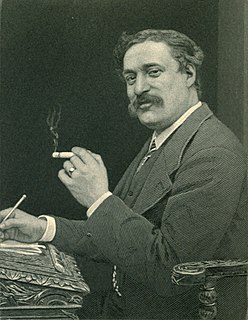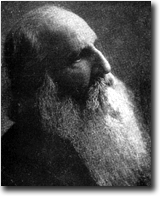A Quote by Tertullian
But all the other frenzies of passions-impious both toward the bodies and toward the sexes-beyond the laws of nature, we banish not only from the threshold, but from all shelter of the Church, because they are not sins, but monstrosities.
Related Quotes
Liberals and conservatives disagree over what are the most important sins. For conservatives, the sins that matter are personal irresponsibility, the flight from family life, sexual permissiveness, the failure of individuals to work hard. For liberals, the gravest sins are intolerance, a lack of generosity toward the needy, narrow-mindedness toward social and racial minorities.
When it began, Christianity was regarded as a system entirely beyond the range and scope of human reason; it was impious to question; it was impious to examine; it was impious to discriminate. On the other hand, it was visibly instinct with the supernatural. Miracles of every order and degree of magnitude were flashing forth incessantly from all its parts.
I'm convinced that welfare reforms deserve our support, both because they are better (or at least much less bad) for the animals involved (the Golden Rule), and because they push the envelope, moving us closer to the compassionate world that all animal rights activists are working toward...On the other hand, working toward welfare reforms has the immediate benefit of helping improve animals' lives today and acts as a crucial stepping stone toward animal liberation.
Just as counterpoint and harmony follow their own laws, and differ in rhythm and movement, both formal tensions and color tensions have a development of their own in accordance with the inherent laws from which they are separately derived. Both, however, aim toward the realization of the same image. And both deal with the depth problem.
All laws which can be violated without doing any one any injury are laughed at. Nay, so far are they from doing anything to control the desires and passions of men? that, on the contrary, they direct and incite men's thoughts the more toward those very objects, for we always strive toward what is forbidden and desire the things we are not allowed to have. And men of leisure are never deficient in the ingenuity needed to enable them to outwit laws framed to regulate things which cannot be entirely forbidden... He who tries to determine everything by law will foment crime rather than lessen it.
The laws of Nature take precedence of all human laws. The purpose of all human laws is one - to defeat the laws of Nature. This is the case among all the nations, both civilized and savage. It is a grotesquerie, but when the human race is not grotesque it is because it is asleep and losing its opportunity.
By directing our sentiments, passions, and reason toward the common human plight, imagination grants us the advantages of a moralexistence. What we surrender of innocent love of self is exchanged for the safeties and pleasures of belonging to a larger whole. We are born dependent, but only imagination can bind our passions to other human beings.
I do not feel that the West has really become less condescending toward foreign cultures than the Greeks and Romans were: it has only become more tolerant. Mind you, not toward Islam—only toward certain other Eastern cultures, which offer some sort of spiritual attraction to the spirit-hungry West and are, at the same time, too distant from the Western world-view to constitute any real challenge to its values.


































